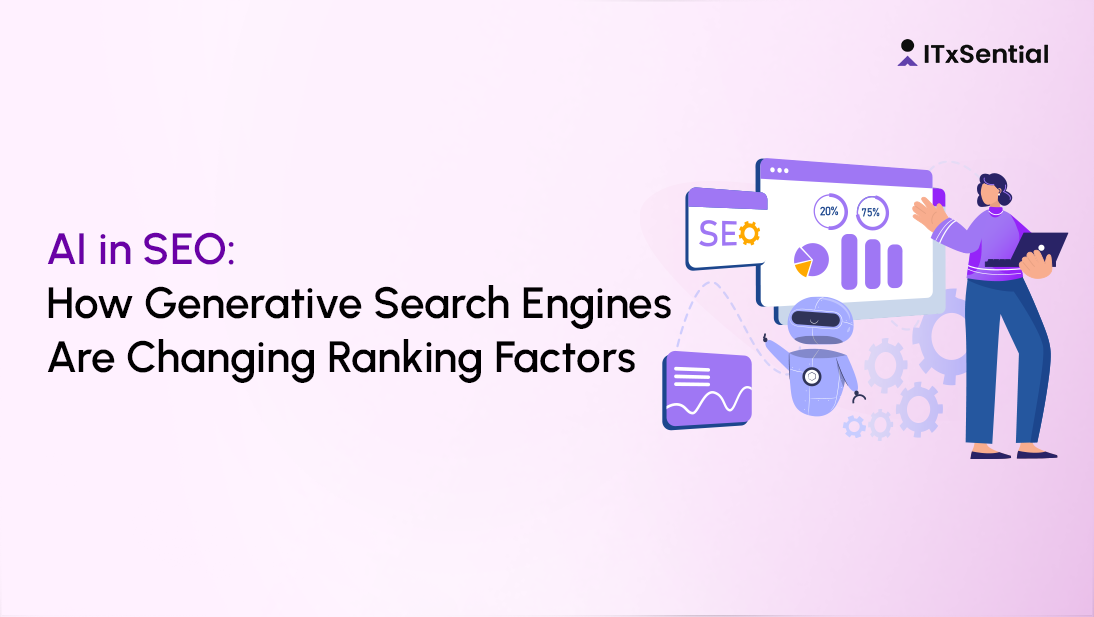Introduction
The rise of AI in SEO 2025 is reshaping how marketers think about rankings, traffic, and visibility. Traditional keyword stuffing and link-chasing no longer cut it—generative search engines like Google’s SGE and Perplexity now synthesize answers, cite trusted sources, and evaluate authority signals differently. For marketing managers, this means adapting strategies to a landscape where content quality, trust, and structured signals drive discoverability. This article breaks down what’s changed, why it matters, and how to build an SEO roadmap that thrives in the AI-driven search era.
What Generative Search Engines Are and Why They Matter
Generative search engines don’t just match keywords—they synthesize answers, blending results from multiple sources into conversational, human-like summaries. Instead of a list of 10 blue links, users often see:
- A narrative summary.
- Citations to 2–5 authoritative sites.
- Related questions or “next step” prompts.
For SEO, this means visibility now depends on being a cited source, not just ranking top three. Your site must demonstrate authority, clarity, and structured value.
Key takeaway: If you want traffic in 2025, you need to be the source engines trust enough to quote.
Ranking-Factor Shifts Caused by Generative Models
1. Intent Understanding
Search engines decode nuanced queries—“best CRM for nonprofits under $500” needs answers with context, not broad sales copy.
2. Content Synthesis vs. Source Citation
Engines blend content but only cite a handful of trustworthy domains. Sites with strong authority and clean structured data get the mention.
3. Trust Signals / E-E-A-T
- Author bios, credentials, and real-world expertise matter.
- Transparent sourcing boosts citation likelihood.
4. Conversational & Contextual Signals
Natural-language FAQs and conversational headings align better with generative summaries.
5. Structured Data & Citations
Schema markup for FAQs, products, and reviews increases your odds of being pulled into summaries.
6. User Interaction Signals
Click-throughs, dwell time, and engagement influence which sources engines continue citing.
Key takeaway: Ranking is less about position and more about earning a spot in generative summaries through trust and structured clarity.
Practical Tactics for 2025
1. Content Formats That Work
- Data-driven studies
- Expert interviews
- FAQ clusters
- Interactive tools
2. Citation-First Content
Always cite primary research and link transparently—search engines reward sources that validate their claims.
3. Structured Data
Add schema for:
- Articles
- Reviews
- FAQs
- Products
4. Authoritativeness Signals
- Detailed author bios
- Linked social profiles
- Clear editorial standards
5. Testing & Iteration
Run content refresh cycles every 90 days to stay relevant to evolving AI outputs.
Mini Case Example 1: A B2B SaaS blog added structured FAQ schema to 25 pages; within 60 days, three were cited in SGE answers, boosting referral traffic by 18%.
Key takeaway: In AI-driven search, content needs citations, structure, and visible expertise.
How to Measure & Experiment
Metrics
- Citation presence in SGE/AI boxes
- Referral traffic from AI summaries
- CTR from generative results
- Engagement time
Experiments
- A/B testing structured vs. non-structured content
- Tracking citation frequency across queries
- Monitoring new long-tail queries surfaced
Mini Case Example 2: An e-commerce site tested structured product reviews with schema. Within three months, products were cited in AI snippets, driving a 12% lift in conversions from search.
Key takeaway: Treat AI-driven search as a testing ground, not a fixed formula.
Risks, Ethics, and Compliance
- Hallucination risk: AI may misrepresent sources—brands must monitor.
- Attribution gaps: Not all content cited properly.
- Misinformation: Ensure fact-checking and editorial review.
Key takeaway: Compliance is now part of SEO. Misinformation penalties can outweigh ranking gains.
60–90 Day Action Plan
Weeks 1–2
- Run SEO audit for structured data gaps.
- Add author bios + E-E-A-T elements.
Weeks 3–4
- Create 2–3 data-backed assets (case study, survey, report).
- Implement FAQ schema on top pages.
Weeks 5–6
- Outreach to industry sites for expert roundups.
- Publish updated evergreen guides.
Weeks 7–8
- Track citations in generative search.
- Refresh underperforming articles.
Weeks 9–12
- Launch small digital PR campaign.
- Double down on formats cited most often.
Key takeaway: A 90-day sprint can reposition your site as a citable authority.
Recommended Tools, Templates, and Outreach Scripts
Tools
- Ahrefs & Semrush (citation tracking)
- SurferSEO (content optimization)
- Schema Markup Validator
- AlsoAsked.com (FAQ mining)
FAQs
Q1. How will generative search engines impact keyword research?
They’ll expand the value of long-tail, conversational queries, so clustering topics matters more than exact-match keywords.
Q2. Does link building still matter in AI-driven search?
Yes—authoritative links remain signals of trust and often determine which sources get cited.
Q3. What content performs best in AI summaries?
FAQ-rich, structured, data-backed, and expert-authored content has the highest citation probability.

